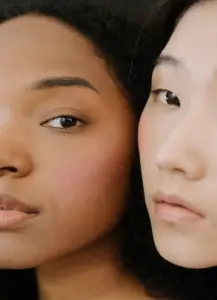
10 Best Products For Milia In Singapore For Every Budet
Editor’s Choice NEOSTRATA GLYCOLIC RENEWAL Smoothing Lotion CHECK LATEST PRICE 2nd Best Choice Peter Thomas
Once you reach the 30-year-old mark, caring for your skin should be a priority now.
Unlike in your younger years when you could be carefree and let your skin be without a proper skincare routine, finding a suitable regime that works is of paramount importance to keep your skin looking revitalized, youthful and healthy.
On top of using the right skincare products, you want to look for the best microcurrent facial device that addresses fine lines, wrinkles, sagging and other aging skin concerns that are both cost-effective and easy to use in a home setting.
In this review, we’ll be taking a closer look at 2 of the most popular, recognized microcurrent facial devices on the market today—ZIIP and NuFACE.
While NuFACE is the more well-known brand, ZIIP has been proving itself as a newcomer with cutting-edge technology.
Continue reading to find out more about their safety, differences, pros and cons, etc, all of which are important to help you choose the right device that suits your skin’s needs.

Both ZIIP and NuFACE Trinity are painless, non-invasive facial toning devices that harness the power of microcurrent technology to deliver a fairly low-voltage electrical current through your skin.
This helps to stimulate your facial muscles and encourage the production of elastin and collagen, hence a firmer and more “lifted” appearance.
Microcurrent therapy is a non-invasive technique relying on the action of a pulsed current of low-frequency and low-strength.
In the early days, microcurrents were used in plastic surgery for rehabilitation after certain procedures. Think in the presence of damaged issues, when massage is contraindicated, microcurrents are the only solution. They help relieve swelling and pain, as well as stimulate the regeneration of new skin cells.
Today, microcurrents infiltrated regular skin care and at home.
The electrical current is thought to boost collagen and elastin production, revealing firmer, more youthful complexion. Microcurrent facials are often used as an anti-aging treatment, but they can also be helpful for individuals with other skin concerns, such as acne or rosacea.
Microcurrent facials are typically performed in a series of two-month treatments. Some users may see results after just a few procedures while others may require the full series to yield desired results.
Microcurrent technology is completely safe and in fact, has been around for decades as a physical treatment for pain relief and facial paralysis patients.
Having said that, it’s not recommended for individuals with pacemakers, metal implants, pregnant and/or nursing mothers, as well as those with chronic acne.
ZIIP and NuFACE feature the same technology; the main difference however is that ZIIP also uses nancurrents along with microcurrents.
Nanocurrents are smaller than microcurrents, thus able to penetrate deeper into the skin, which means that aside from lifting and smoothing fine lines, it can also address other concerns such as hyperpigmentation and lymphatic drainage.
NuFACE Trinity comes with two additional attachments—one for the eyes and the lips, as well as a red LED light wrinkle reducer for individuals who wish to target more specific areas.
ZIIP on the other hand, is a single device that comes with no additional attachments but it can be used for nine different treatments such as lifting, removing fine lines, lymphatic drainage, and treating acne.
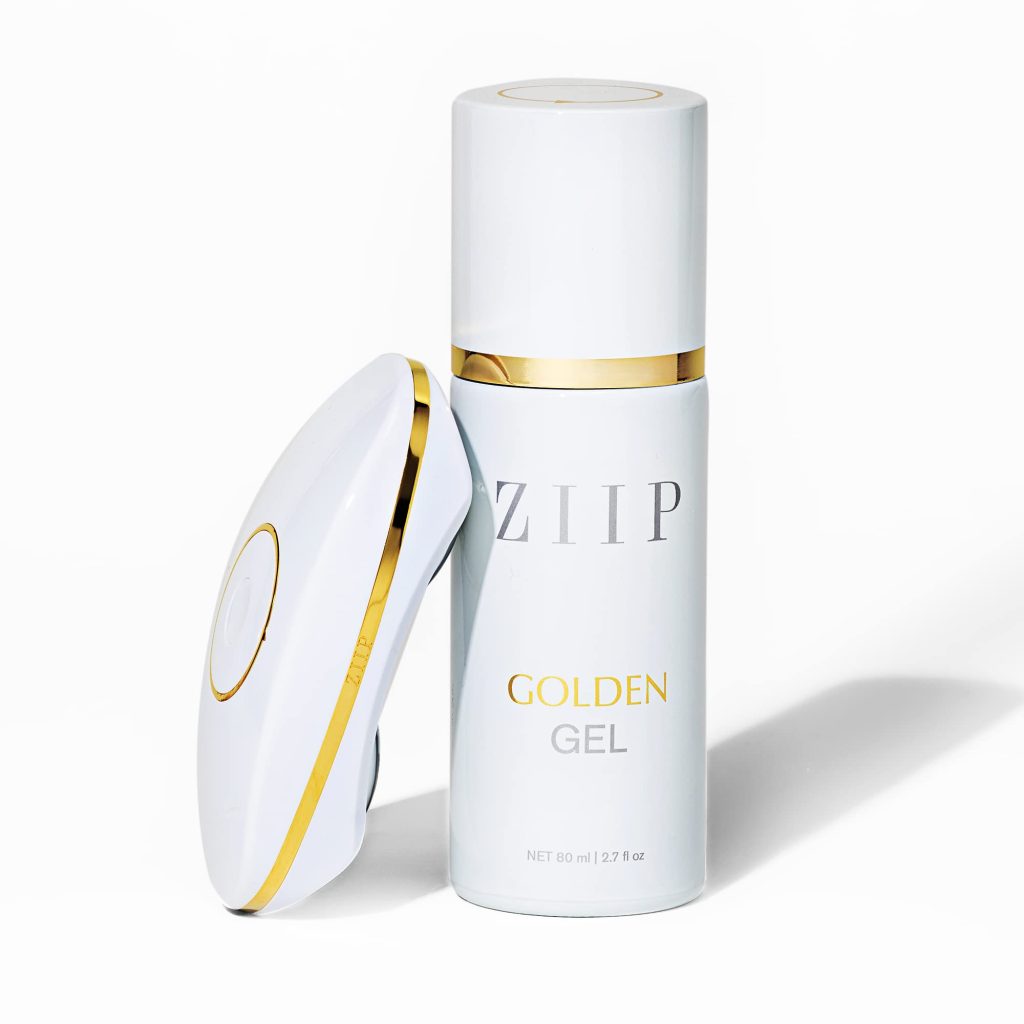
Designed by reputable Electrical Esthetician Melanie Simon, the ZIIP Beauty GX Series microcurrent facial device is a one-device solution to all your skin toning, revitalizing, anti-bacterial, and color-correcting needs.
In contrast to traditional microcurrent technology which mainly lifts, sculpts, and tightens the face, the ZIIP can address hyperpigmentation, acne, puffiness and can be used on delicate areas such as the under eyes without the need for extra attachments.
Aside from using microcurrent, the ZIIP device also uses nanocurrent, which amplifies the results of microcurrent and is also responsible for increasing ATP, collagen, and elastin.
The ZIIP facial toning device uses both direct and alternating current, as well as different waveforms. The brand also claims that it’s in sync with the body’s own frequency.
Sync the ZIIP device with the treatment of your choice on the ZIIP app. This will program the device’s currents to the specific treatment you’re looking for.
Apply a layer of the primer gel to the treatment area, then gently glide the silver ball across your skin for 5-20 minutes.
You may follow the tutorials available on the app for directions on how to correctly move it around your skin.
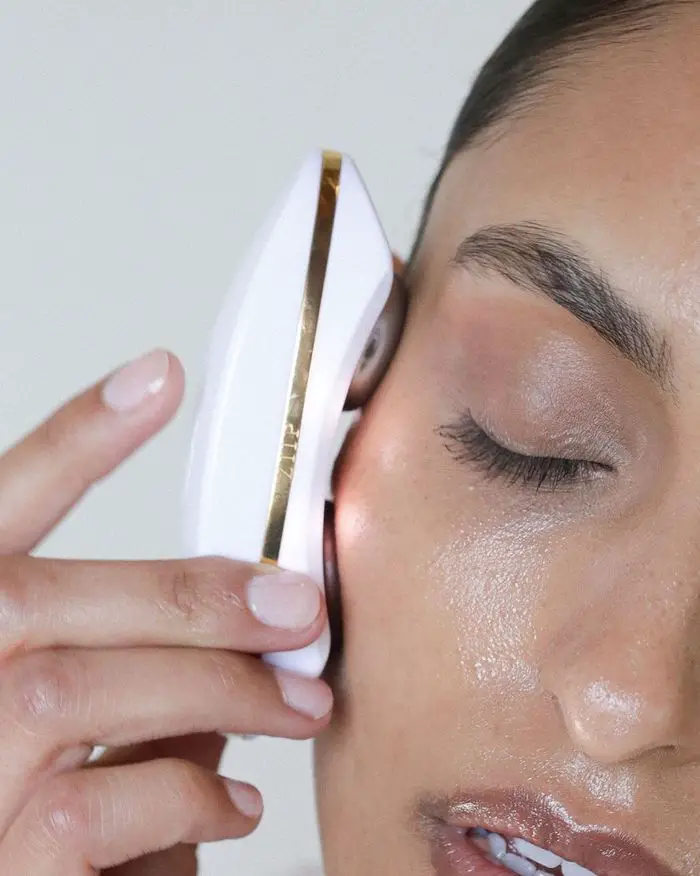
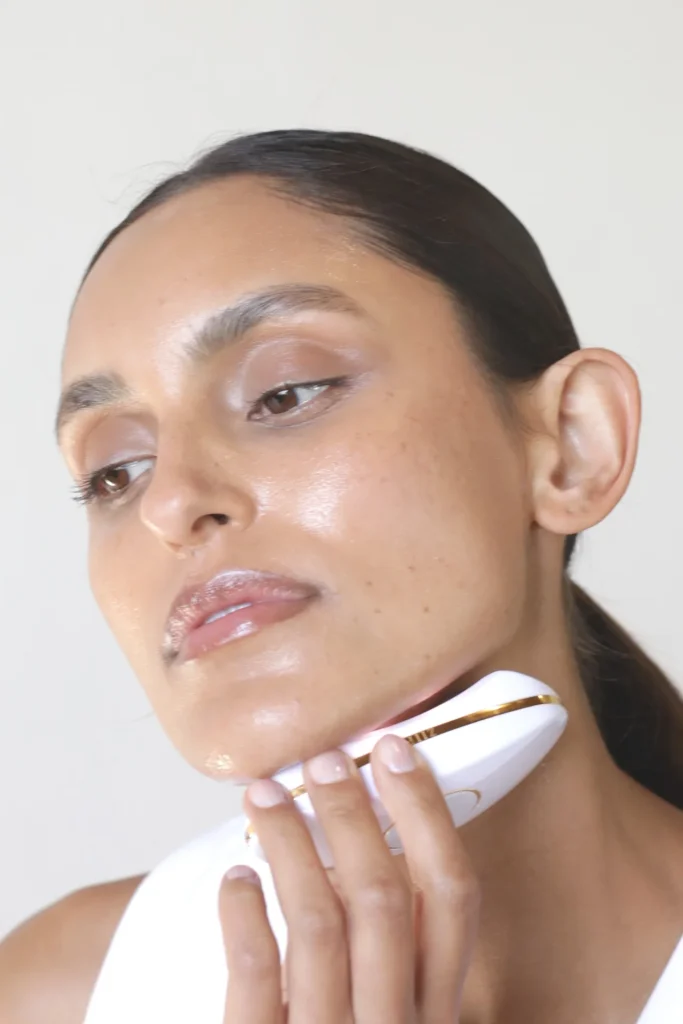
The ZIIP beauty device is currently priced at $495 (as of 7/2/2023). Though slightly pricier compared to other mircocurrent facial devices, the professional-calibre result it delivers makes it worth the high price point.
Despite the higher price point, the ZIIP Beauty GX Series microcurrent facial device is one high-quality tool that’s packed with value thanks to its versatility and effectiveness.
Ample research has gone into the use of different currents to treat different skin concerns such as pigmentation and acne—not something that’s usually available with other microcurrent devices which focus solely on lifting and sculpting.
Effective, easy to use, and sleek-looking, the ZIIP beauty device can surely add to the whole experience of pampering yourself with a relaxing, at-home facial.
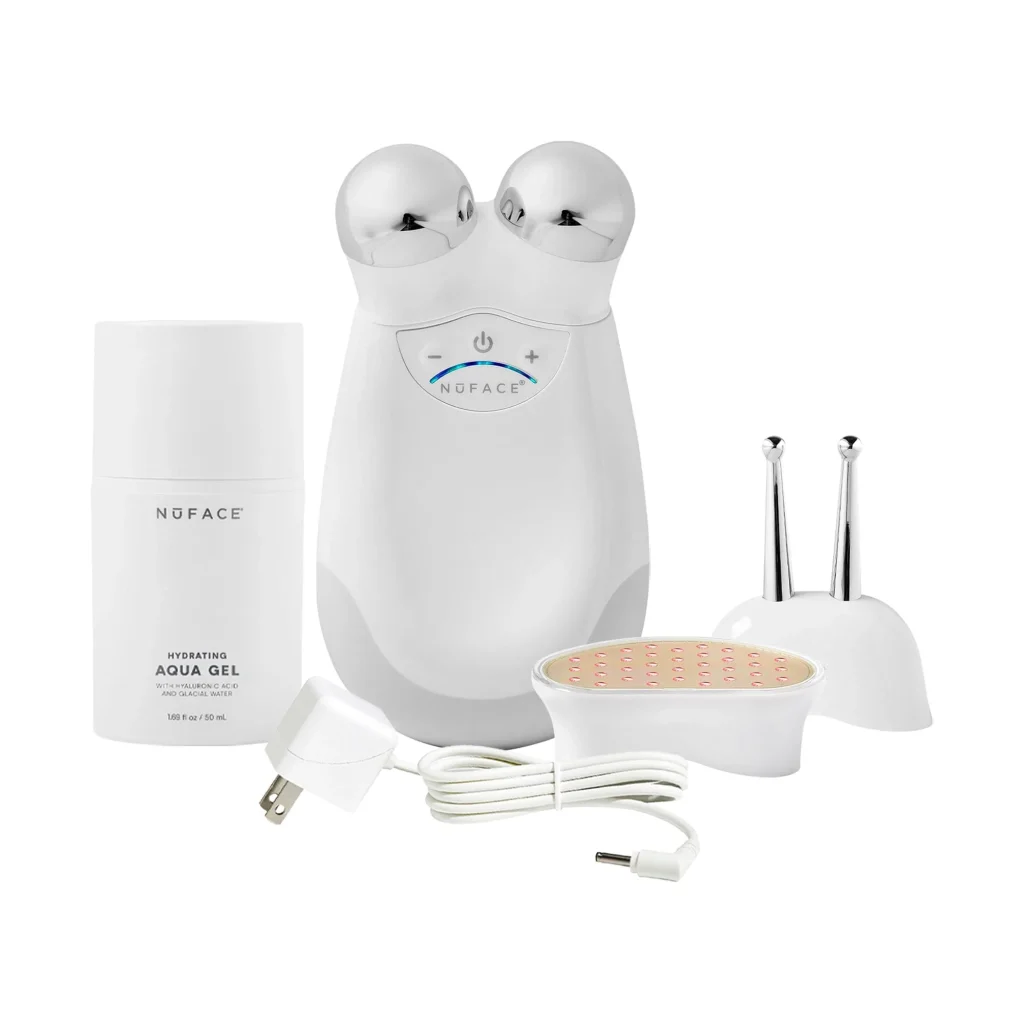
NuFACE was established by mom-and-daughter duo Carol and Tera Cole, as a solution for clients who yearn for home-based therapies in between professional treatments.
SInce then, NuFACE has become a tried and tested brand with a loyal cult-like following.
Apart from the Trinity, NuFACE has also graced us with many other models if you have more specific needs to address.
Amongst their most popular devices has to be the NuFACE mini—a smaller version of the Trinity designed for easy transportation. Check out the differences between NuFACE Mini and Trinity here.
There’s also a larger body-sculpting version called NuBODY and a streamlined, skinny version of the aforementioned for targeting fine lines called NuFACE Fix.
Apply a generous layer of the primer gel to the treatment area, gently glide the silver ball over your skin in an upward motion and repeat it for 5-20 minutes.
Begin by using it 5 times a week for the first 60 days, and you may gradually reduce it to 2-3 times a week. You can follow the tutorials on the app for directions on how to move the device around your face more accurately.
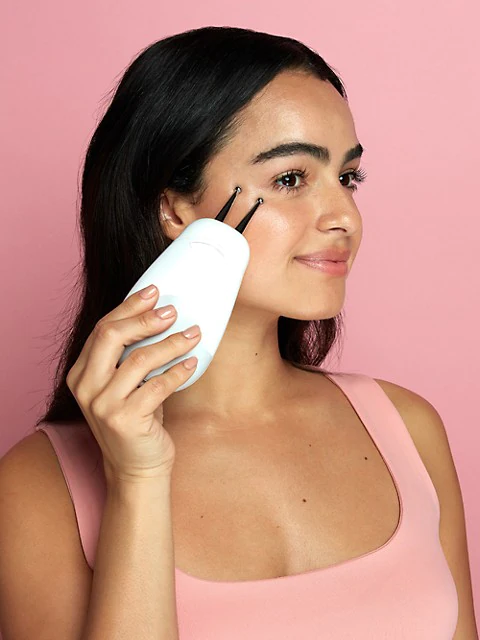
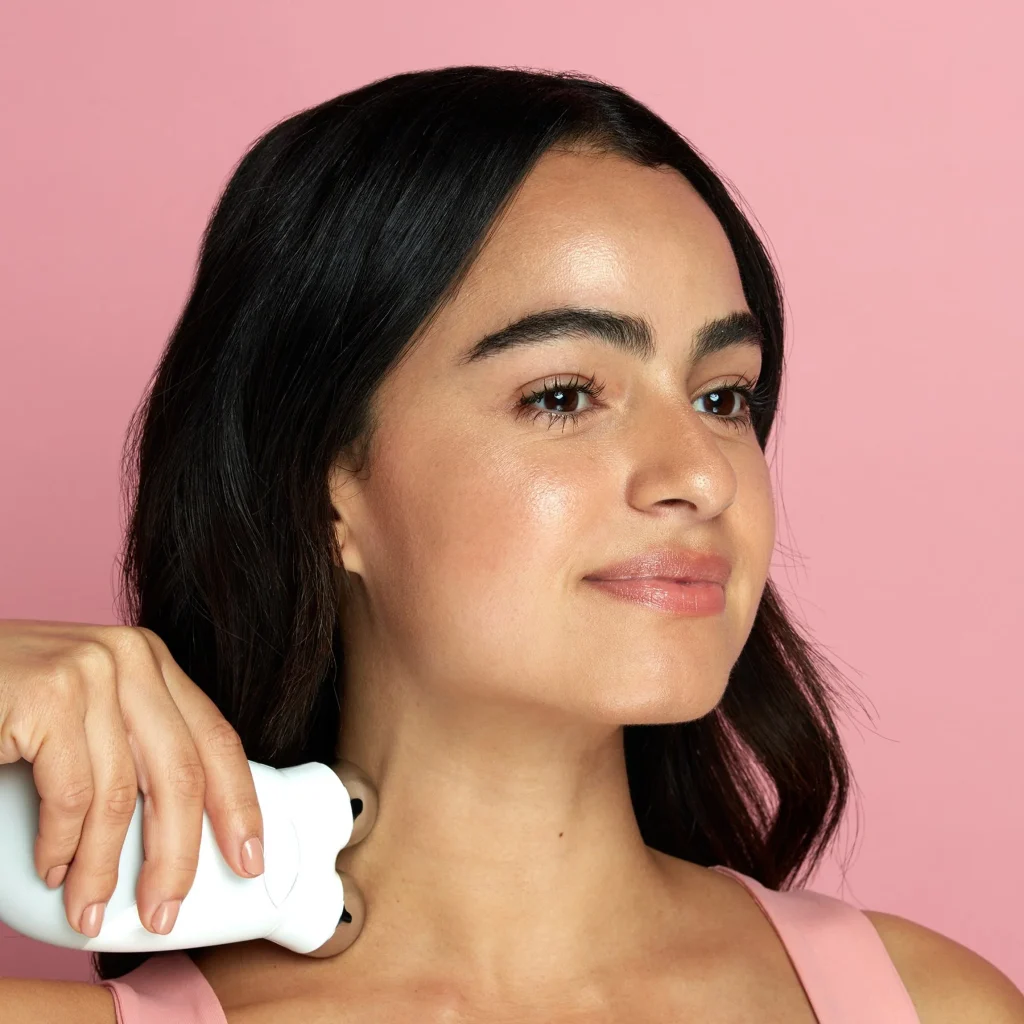
The NuFACE Trinity is currently priced at $395 (as of 7/2/2023), slightly lower than ZIIP but with additional attachments—one for the eyes and the lips, and another red LED light wrinkle reducer for those looking to treat aging skin.
NuFACE Trinity has been proven effective in the case of many users—many reported it firmed skin and sculpted the face. Though it requires some investment of time and money, if you compare it with a weekly in-office treatments, the savings do add up. The key is to be extremely consistent with using it as the effects of the treatments are cumulative. All in all, NuFACE Trinity is an effective, pain-free, and non-invasive way to tighten and tone sagging skin. It’s a trusted brand in the beauty industry for those who’re looking for a brand that’s known and well tested.
Both ZIIP and NuFACE Trinity are effective microcurrent facial devices for addressing skin woes such as fine lines, sagging, and dullness. However, they are strong in different areas.
ZIIP is more of a luxury option and makes a better choice for those who’re looking for a single device to treat a wide array of skin issues.
NuFACE Trinity on the other hand, is slightly more affordable and great if you wish to lift and contour your face.
While ZIIP is on the pricey side, it does provide more value in terms of the number of ways you can improve your skin thanks to its advanced electrical current technology and slightly higher current intensity.
If you’re thinking about all the extensions you need to purchase separately for NuFACE to get that complete treatment—eye and lip area and/or red LED light—the cost works out to be about the same. Plus, there’s no need for fiddling with attachments for ZIIP beauty devices.
Also, if you’re looking for a really tried and tested brand, then NuFACE may be a better choice compared to ZIIP as it’s a much newer brand.
With all that being said, whichever device you opt for, you must be consistent in using them to yield the best possible results otherwise you’re better off saving your money.
1. What is the difference between ZIIP and NuFACE microcurrent toning devices?
Both Ziip and Nuface use microcurrents to stimulate the skin and its muscles. However, ZIIP also uses nano currents on top of microcurrents. Therefore, other than tightening and smoothing fine lines, it can also solve other skin problems such as hyperpigmentation and acne marks. NuFACE, on the other hand, focuses more on reducing wrinkles and fine lines, as seen with its additional attachments.
2. How Often Should I Use ZIIP and NuFACE devices?
To achieve optimal results, we recommend using ZIIP 3-5 times per week. The NuFACE, however, needs to be used up to 6 times a week to see visible results.
3. How long does a ZIIP vs NuFACE treatment take?
In the case of ZIIP, you can use it for 2 to 12 minutes, depending on the treatment program you’re using. NuFACE device, nonetheless, recommends a 20 minutes usage on treated areas.
4. Do the ZIIP and NuFACE hurt?
Not at all! The procedures of both ZIIP and NuFACE microcurrent devices are completely painless. You may feel a slight tingle during the treatment, but that’s normal. For a more comfortable session, beware the amount of conductive gel applied to your face, it should be sufficiently plentiful to avoid the feeling of tightness.
5. Can you use ZIIP on the neck?
Yes! Feel free to use the ZIIP device on your neck and décolletage to achieve the same benefits it provides in the facial area.
6. How long does the conductive gel in ZIIP last?
The primer gel that’s used to perform ZIIP facials can last you up to 6 months if you use it daily. Any time longer than that, we recommend changing the gel.
7. How long does the conductive gel in NuFACE last?
If used five times per week, the gel can last you about a month.
8. Are the ZIIP and NuFACE cleared by the FDA?
Yes. Both ZIIP and NuFACE devices are cleared by the FDA and have return policies, so you can test and return it if it doesn’t pan out the way you had planned.

Be mindful of your words as they are impactful, which also explains why I am so fond of writing.

Editor’s Choice NEOSTRATA GLYCOLIC RENEWAL Smoothing Lotion CHECK LATEST PRICE 2nd Best Choice Peter Thomas

Editor’s Choice Coppertone Sport Continuous Sunscreen Spray Broad Spectrum SPF 50 CHECK LATEST PRICE 2nd